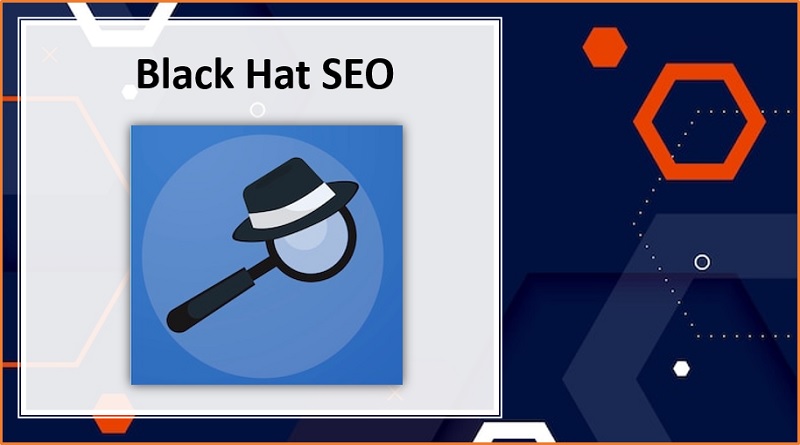Reinventing Web Design: Grapes Studio Lets Small Businesses Build Sites in Minutes
Black Hat SEO: Is Someone Phishing With Your Site Domain?

The long game of search engine optimization (SEO). You may increase traffic by optimizing your website to rank higher on search engine results pages. Additionally, it promotes a solid reputation. However, some people desire to use so-called black hat SEO to cut corners. Your company might suffer if this takes place.
What Is Black Hat SEO?
Black hat SEO is any activity that seeks to increase a website’s ranking and reputation by using methods that violate the terms of service of search engines like Google or Bing. In the early days of the internet, many marketers used black hat SEO tactics to increase their visibility, attract traffic and build trust. But, as search engines evolved and sought to improve the quality of search results, they imposed penalties on unethical practices. Now, threat actors have embraced this old-school subterfuge to exploit companies with established reputations and steal from unsuspecting online shoppers.
Why Do People Use Black Hat SEO?
White hat SEO, or ethical SEO, takes a while to produce results. When your website achieves high rankings for difficult-to-find keywords, potential clients will perceive you as a trustworthy brand. Threat actors have discovered that taking over a website with a solid reputation is the greatest approach to rank a site quickly. Attackers may mimic your website using a technique called domain spoofing, then employ black hat SEO strategies to direct traffic to their copy. Someone might spoof a website to sell low-quality products to profit from the reputation of a trusted store. They could also use the spoofed domain as part of a phishing scam. As the fake site appears almost identical to the bonafide brands, scammers can fool customers into sharing their credit card details. Once thieves have your personally identifiable information, they can make fake purchases and sell your information on the dark web. The good news is that modern analytics and antivirus solutions can help detect phishing sites quickly. However, black hat SEO attackers can increase the rankings of a spoofed domain and lure unsuspecting victims before the fake site is detected and shut down.
How Does Domain Spoofing Impact Your Business?
In the age of social proof, trust with consumers is important. Your company could succeed or fail based on its internet reputation. There are severe consequences when individuals replicate your website using black hat SEO. You lose customers. Your website will receive fewer visitors as fake websites mislead potential buyers. Sales will be lost, and the results of your marketing investments will be less favorable. Customers stop believing in your brand. People that utilize black hat SEO end up on fake websites. Next, they can come across badly crafted articles, spam links, phony comments, and bogus advertisements. The negative user experience may cause individuals to see your brand differently. People post negative reviews. Even though the victims may be blaming a fraudulent website, if it was done under your brand name, they will hold you accountable. The negative press may prevent other clients. Search engines could penalize your business. If a legitimate company’s website doesn’t adhere to search engine guidelines, sometimes it will face the consequences. A site may be removed from search results due to a Google penalty. The volume of traffic will decrease, and recovery may take a while.
Reduce the Chances of Customers Visiting a Cloned Website
If customers fall prey to financial fraud or identity theft and believe it was your company, you could have a public relations nightmare on your hands. It’s best to get ahead of this threat. Here are seven steps to help you prevent black hat SEO from misleading your customers to a spoofed website:
Install a TLS Certificate
A Transport Layer Security (TLS) certificate is a digital security protocol that authenticates the identity of a website and establishes an encrypted connection between the website and the user’s browser. Users can see the padlock and HTTPS prefix in your domain URL, which gives them confidence that you will keep their personal information private and secure.
Secure Your Source Code
Ideally, your developer should add security measures to protect your website from potential attacks. One such tactic is to disable the copy-paste function on your site so attackers can’t easily copy your source code.
Remain Proactive
Companies should have vigilant security teams who proactively monitor their domain and traffic for any suspicious behavior. When you have set processes and strategies for data handling and risk management, you can improve how you identify and defend against threats.
Use the rel=canonical Tag
A common aspect of website spoofing is to create duplicate pages of a genuine site and then make subtle changes to the URL, such as changing one letter. Adding the rel=canonical tag lets search engines know that a specific URL is the master copy of a site page, making it harder for fraudsters to duplicate your site.
Study Your Website Analytics
Quite often, scammers are playing for a quick win and may not take the time to change all the internal links. Even if visitors land on a cloned site, they can click on links to get to the legitimate, original domain. Check your website analytics to identify incoming traffic from a cloned site with a similar domain name. You can also improve your chances of spotting a duplicate site if you build a lot of internal links on your website. Luckily, that’s also a good SEO practice to increase your site performance.
Take Action
Act quickly to take down a faked website if you find it. Report the IP address first. Request that your hosting company restricts all requests to the IP address of the fake website by getting in touch with them. Send a takedown request to the provider or content delivery network next. Give specific information on the attack and any possible threats to your customers or business. To copyright, your brand also helps. Copyright and trademark sharing can speed up the takedown procedure and give your website an additional degree of security.
Hire a Certified Ethical Hacker
It’s much harder for someone to damage your business with black hat SEO if they can’t also duplicate your domain or breach your website. Hiring a certified ethical hacker will help you find security gaps and vulnerabilities and stay one step ahead.
Restoring Your Reputation After a Spoof
The tips above help you stop scammers. But by the time you take those actions, the impact of black hat SEO and a fake website might have already caused damage. In the worst-case scenario, criminals sold counterfeit products, stole credit card information, and carried out identity fraud on consumers — all under your brand name.
What can you do to make people trust you again?
Address the Situation Publicly
Don’t try to cover up the issue. Produce content that directly addresses your audience and assures them that you are aware of the situation and making every effort to mitigate the harm. You may record a video apology to everyone who was impacted and upload it to YouTube or Instagram. Even if you weren’t at fault, it looks good to accept some of the blame and acknowledge that your security team can do more to keep your customers safe.
Remove Fake Reviews
People using black hat SEO will often add fake online reviews to add to the credibility of their fake website. Contact search engines and third-party review platforms like Trustpilot and ask them to take down any fake reviews.
Add Multi-Factor Authentication
E-commerce stores should always have these security measures to protect customers. It’s worth pointing out that cyber criminals may abuse the CAPTCHA system. Fraudsters will add these tests to spoofed domains to trick visitors into thinking they are on a legitimate, secure site.
Communicate Openly About Your Policies
Inform your clients of your communication policies. For instance, let users know up front if you utilize two-factor authentication so they know what to expect. They may be aware they are not on a legitimate site if they don’t receive a two-factor authentication request to their phone or email. Site spoofing can mislead customers and steal money from their businesses as well as them. Today, being aware of black hat SEO is part of basic online hygiene.




